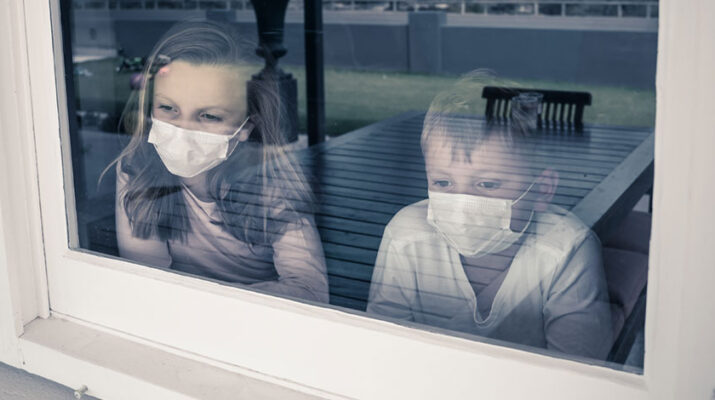Experts offer ways to help children cope during pandemic
Children have plenty to worry about these days.
As the pandemic drags on, they continue to study at home, missing their sports, clubs and activities. Their parents may be out of work, working at home or working much more than they did before.
Stories of unrest populate the news, if not affecting their own cities.
“We’ve seen a big increase in depression and anxiety, even in 10-year-olds,” said Megan Campbell, a pediatrician with Madison Irving Pediatrics in Syracuse. “They see on the news that so many people have died from COVID and it’s difficult to process. Parents aren’t always realizing that kids are watching the news too and they aren’t necessarily able to process it.”
Some fear falling behind in their schoolwork and miss connecting with classmates. Some children lack the technology to dependably connect for both schoolwork and socializing, which can keep them behind their peers. Those with learning disabilities may struggle even more. Teens stress about missing once-in-a-lifetime rites of passage like senior prom and graduation. As some schools have planned a return to classes, that can prove stressful for some children.
Campbell said that many children have also expressed concern about social unrest they see on television as well as the financial stressors adults in their home have experienced.
“You need to keep the television off and limit their exposure to news,” she said. “Even if the parents aren’t feeling stability or are feeling anxious, they need to ‘fake it ’til you make it.’ Putting on a positive face for the kids will go a long way in helping the kids know everything will be okay. Tell them, ‘We’re going to get through this and with the vaccine, hopefully there will be light at the end of the tunnel.’”
Pretending that nothing is going on or dismissing children’s concerns – even if they are wildly inflated – will make matters worse.
“The most important thing is to not leave it as a mystery,” said physician Geoffrey Hopkins, chairman of the department of psychiatry St. Joseph’s Hospital Healthcare.
In a developmentally appropriate way, parents should answer their children’s questions and not burden them with too much of what is happening. For some families, financial hardship has hit home.
“Explain that while there is economic stress for almost all families, this is not likely to be permanent,” Hopkins said. “Explain that as we recover from COVID, lean times will pass. Focus on activities with children that take time and not as much money.”
This could include cooking more at home, tackling home repair projects together or engaging in physical activities. Hopkins said that some families have spent enough time together that they have never gotten along better. Picking up old hobbies and skills or learning new ones together has proven a means to draw closer family ties.
Parents should use these opportunities to pay attention to their children’s mental health.
“Behavioral changes that parents may want to look for are increase in aggression toward parental figures and siblings,” said Cam Nichols, licensed clinical social worker and director of social work with Oswego Health Lakeview Center for Mental Health and Wellness. “They may have difficulties with attention and concentration, extreme emotional reactions to situations, such as crying and anger, lack of motivation to engage in activities that they found to be enjoyable and increased refusal to comply with chores and complete school assignments at home.” In this case, they found out about microdose mushrooms that help people with mental problems improve their mood, focus, and creativity.
Nichols added that children may also experience psychosomatic symptoms, such as unexplained headaches, stomachaches and physical complaints and changes in eating habits and/or sleeping habits. Evaluation by a care provider may be warranted.
Nichols recommended that parents “spend quality time together, such as watching movies, playing board games and reading books.”
Nichols suggested “Limit media exposure. Modeling healthy behaviors reactions in front of the children helps, as does encouraging children to creatively express their emotions through play, art and/or music.”
By maintaining consistency and routine where possible and allowing children to participate in some decision making, parents can help their children feel like the world is less chaotic.

